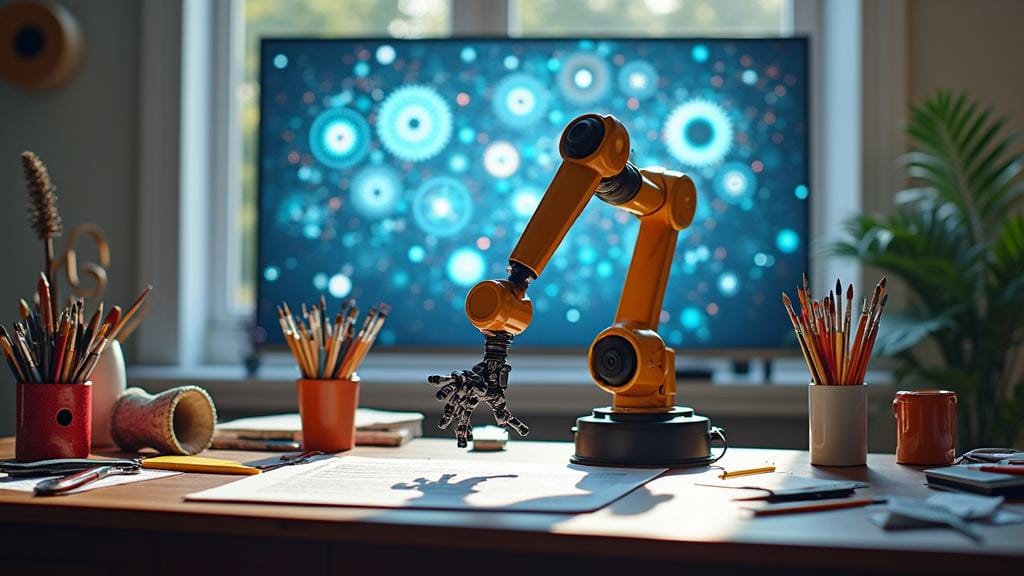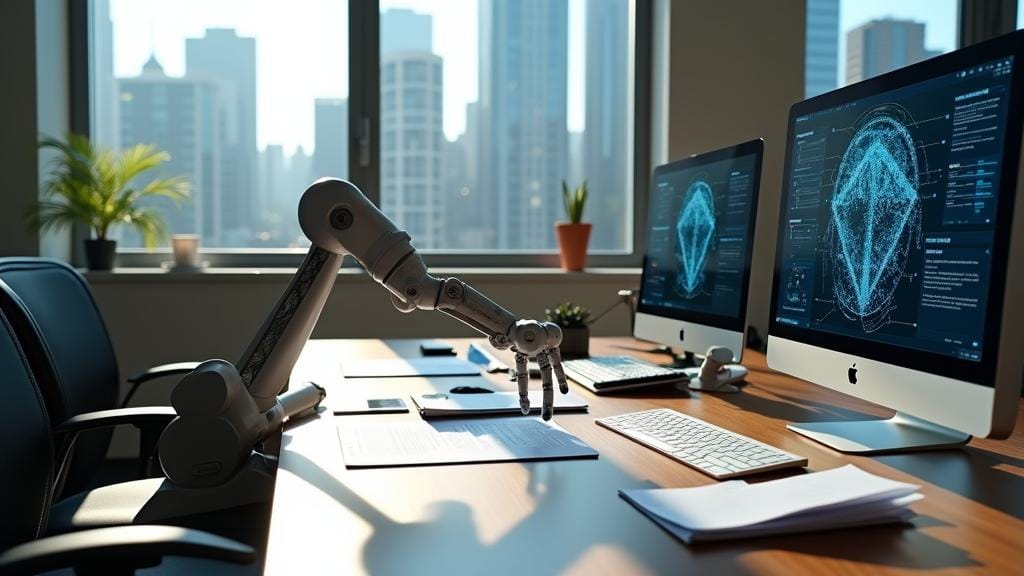AI isn’t directly taking your job, but if you’re not using it, someone else might outpace you. Over 49% of US companies have integrated AI technologies, with many using them to enhance capabilities rather than just replace roles. Embracing AI as a tool offers an opportunity to enhance your skills and remain competitive. It’s essential to focus on tasks that AI struggles to replicate, like interpersonal skills and creative problem-solving. Explore the potential of AI to further understand its impact.

While the rise of artificial intelligence (AI) continues to reshape industries, it’s vital to understand how it’s changing the job landscape. AI adoption is widespread; over 49% of companies in the US have integrated ChatGPT, with nearly half using it to replace workers. Even though AI’s impact on job displacement is somewhat restrained currently, with about 14% of workers affected, projections indicate a more significant shift. By 2030, AI could replace up to 300 million jobs worldwide, affecting about 9.1% of global employment.
For many, the concern isn’t just about losing jobs but about the obsolescence of skills. With four out of ten employers expecting to reduce staff due to AI, it’s evident that staying competitive requires adaptation. Workers aged 18-24 are particularly anxious about this shift, as they recognize the need for skills that AI can’t replicate. 80% of the US workforce could have at least 10% of their tasks impacted by AI, highlighting the importance of developing skills that complement AI.
The focus is shifting towards creative and interpersonal abilities, as roles that demand these skills, like teaching, are less susceptible to automation. In industries like manufacturing, the impact is already visible, with up to 2 million jobs potentially being replaced by 2025. The chatbot market is expected to reach $46.64 billion by 2029, creating new opportunities in AI-driven customer service. Conversely, fields such as healthcare are less likely to see significant displacement due to the complex and interpersonal nature of the work involved. The financial sector may face reductions in roles like insurance adjusters. Meanwhile, Salesforce’s decision not to hire coders in 2025 underscores AI’s growing influence.
The demand for retraining is becoming apparent, with over 120 million workers potentially requiring new skills by 2030. AI’s integration into businesses reflects its growing presence, emphasizing that adaptability and critical thinking will be vital for future job security. As AI’s economic impact could reach $15.7 trillion by 2030, the transformation of the labor market will focus on tasks not easily automated. Ultimately, AI isn’t taking over jobs at a rapid pace yet, but its influence can’t be ignored.
The key to staying relevant lies in embracing AI as a tool that enhances your capabilities rather than viewing it solely as a threat. By harnessing technology and evolving your skill set, you can guarantee that AI becomes an ally in your career journey, not an adversary.

